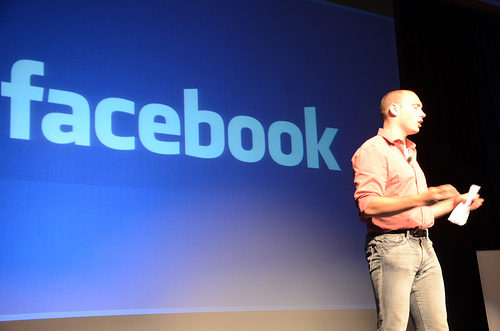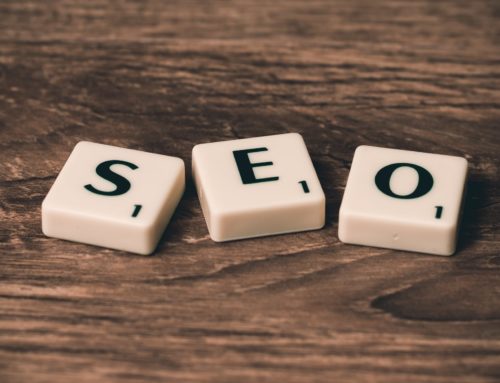Its $108 Billion offering came in as the 3rd largest ever (behind Visa and Enel), so the day was significant not only for social media types but also for market watchers.
What has surprised me a bit is the amount of negative comments in the Facebook conversation. Admittedly, I am a market skeptic, and Facebook had a strange first day on the market by popping six percent and cruising back down to a 23 cent gain at the bell.
But we’re talking about one of the most powerful cultural forces of the 21st century … and you can actually buy a piece of it.
You would think people who spent a large chunk of their lives wrapped up in digital conversation would embrace that.
One particular line of attack on Facebook’s future has been the belief that it will some day be displaced because it has lost its cool factor, corporatized, “sold out,” etc.
And that premise seems bunk to me for five distinct reasons:
1. Facebook is not like the tech companies that crashed in the 90s, and anyone who stops for two seconds to think about that knows it.
Pets.com was a website where you could get anything related to pets. It had a generic name, offered little to no convenience factor, and dealt only with people who spent bukus of cash on pets.
Facebook is a cultural phenomenon that mesmerizes people into broadcasting private information and personal opinions in static form. A huge majority of the market is a potential customer, and a huge chunk of the businesses out there already spend money on it.
Sure, GM got off of there, but GM can afford TV block time and is hardly a surefire fit for general social media advertising.
2. Facebook is the market leader now, and doesn’t show signs of going away immediately.
That means you get to jump into the market and buy a blue chip best-in-breed at a reduced $38 price marker based on general uncertainty that has little to nothing to do with Facebook’s business model.
When the world goes into crisis, Facebook gets more of its most prized possession (information). This is info they’ve already monetized to a certain extent, and will figure out how to continue doing.
3. Critical mass is undoubtedly on Facebook’s side in a market where that is the most important factor.
Google+ has stalled because, in spite of its amazing features (seriously, Hangouts is cool and you know it), it doesn’t have the already-existing numbers.
If Google+ were real, it would be a Ron Paul rally right before the New Hampshire primary, complete with a scraggly, motley crew of male, long-haired techies who think weird pictures are the funniest form of humor (OK, that wasn’t entirely fair, but you get the picture).
Almost every other SN that has popped up has fallen into a niche (Google+ = male techies, Pinterest = Lifestyle ladies, OK Cupid= somewhat unusual dating, etc.).
Facebook is the standard.
Facebook, if turned physical, is the closest network to looking like the “actual world.”
It represents the term “social network,” and has the story and movie to prove it. And the main character is still part of the script.
4. Facebook is buying like crazy. But it’s not buying garbage tech. It’s buying GOOD products. Products that are proven. Products people already like.
So when things start to topple a bit in its main category, it has a diverse portfolio with products that are close to Facebook. It can understand the operations of these other companies enough not to mismanage them (heck, half of them already have some attachment to/compatibility with Facebook anyway).
Yet they are different enough to spread risk in ways that make sense. Facebook takes seriously its risks to its core while building for the future.
5. Yahoo! was once best in breed and was knocked off its pedestal by Google, right?
And in spite of the differences between search and social, there may be some historical precedent that makes sense for us to briefly examine there.
But let’s skip a step and just grant that some other company will pass Facebook and knock it in to second place (I don’t think anyone see it falling to third or lower like MySpace, but hey, it’s a random universe).
Yahoo! was about 1.20 at IPO in 1996, topped out at 108.17 in December of ’99 and is 15.42 today. I don’t know about you, but I could care less if the stock I bought at IPO had fallen to second place as a brand but doubled every fifteen months!
That’s not just a “good investment” – that’s one of the all-time greatest investments you could ever make!
And I haven’t even mentioned the best part: The stock has had five good splits to date:
September 2, 1997: 3 for 2
August 3, 1998: 2 for 1
February 8, 1999: 2 for 1
February 14, 2000: 2 for 1 (Happy Valentine’s Day, shareholders)
May 12, 2004: 2 for 1
In a nutshell, if you had thrown a HUGE chunk of change at Yahoo! at IPO, you would be filthy, dirty, aristocratic pig covered in one-and-a-half-foot mud rich.
If Facebook is the next Yahoo!, it’s a shrieking buy.
As an extension of that comparison, I’d like to take the Yahoo! analogy a bit further to make it complete.
Yahoo! was, undoubtedly, a huge factor in the lives of anyone who used the Internet in the 1990s. It was the search bar we used. Its news and finance section have almost always thrived. And the mail system is very good.
But is it the same cultural phenomenon that Facebook is? Absolutely not.
To get the scoop from your friends nowadays, you go to Facebook.
When Yahoo! was on top of the search world, you got that kind of information from conversations and away messages on AOL Instant Messenger.
Facebook is a totally different beast that represents a much different picture than AIM or Yahoo!
To brush that off is a total injustice to the academic conversation regarding social media as a whole.
(“Shocking” disclaimer: I own a few shares of Facebook.)









[…] After surpassing 1 billion users this past month, Facebook has become an institution that appears to have some staying power. But there is a lingering issue that threatens Facebook’s dominance even more than advertising revenue and stockholder discontent. […]
[…] Posted 1 day, 2 hours ago @ admin // No Comments #leftcontainerBox { float:left; position: fixed; top: 60%; left: 70px; } #leftcontainerBox .buttons { float:left; clear:both; margin:4px 4px 4px 4px; padding-bottom:2px; } #bottomcontainerBox { height: 30px; width:50%; padding-top:1px; } #bottomcontainerBox .buttons { float:left; height: 30px; margin:4px 4px 4px 4px; } After surpassing 1 billion users this past month, Facebook has become an institution that appears to have some staying power. But there is a lingering issue that threatens Facebook's dominance even more than advertising revenue and stockholder discontent. […]
[…] How Facebook Could Become Irrelevant November 20th, 2012 | Jim Dougherty | 0 Comments TweetAfter surpassing 1 billion users this past month, Facebook has become an institution that appears to have some staying power. But there is a lingering issue that threatens Facebook’s dominance even more than advertising revenue and stockholder discontent. […]
[…] few months ago, my WUL colleague Dan Cohen gave us his reasons to buy Facebook stock, and I agree. I don’t think the company itself is going […]
[…] few months ago, my WUL colleague Dan Cohen gave us his reasons to buy Facebook stock, and I agree. I don’t think the company itself is going […]
Great post Dan – I am definitely interested to see how it all pans out!
Thanks, @rachaelseda! We’ll find out down the road if this article pegs me as a bumbling fool or a vindicated buy and hold investor. But I’m with you… Let’s see how it shakes out!
I get to post first and bring the finance guy’s view to counter you Dan.
First off you nailed it and explained why not to buy facebook! Well let me say buy it now, sell it in 3 years.
AOL owned the internet! Yahoo then owned the Internet. EBay and Priceline were supposed to own the internet. Google now owns the internet. Facebook is supposed to take over. You see the logic here. Did you know only 22 Internet only stocks are worth over $1bil? if you don’t make something you won’t last. And facebook doesn’t make anything. And we all left Friendster and Tribe for Myspace. Then we all left Myspace for Facebook.
So two more points. First: Per ComScore we spend only 12 mins a day on Social nets vs 4+ hrs for TV. And per Compete Facebook has grown only 4% in the US in the last 12 months. And for Facebook users time spent is down 50% per user per day over the last 2 years from 55mins to 21mins.
Lastly the numbers. This was a big pump and dump stock. Insiders dumped $9bil in stock friday (huge red flag) and the underwriters spent the whole day trying to keep the stock in the black. Meaning they had to buy shares to stop it from dropping below $38. And the fact that the network is a big paid advertising play and the ads don’t work.
So the reason I am negative is the current valuation. I view Facebook as a $30-40b company based on it’s fundamentals. And look at the housing market. Today the average home in the US is worth the same it was in 2004. We have neighbors who haven’t been able to sell for 4 years because they want 2008 prices.
So buyer beware! I have told everyone to short facebook until it drops 25%. Let’s see how today does 8)
Correction. Facebook users spend 405 mins per month now. Which is about 13 per day down from 55 in April 2010. That just came in an Adage article showing G+ only gets 3 minutes per month. I think this is why all the social stocks have been dropping. We aren’t spending the time the general news makes us think we are. So this is a red flag for me as well.
Thanks for the input, @HowieSPM I think it’s interesting we have a similar thesis in a way: we both think Buy and Hold will work. It’s just a matter of how long.
Intriguing take that the net is less of a time suck than the media have made it out to be. Those numbers are actually INCREDIBLY surprising to me, give that I easily spend 30+ hours a week, hands down, if we are judging that by having a browser open. Throw in mobile phones and the net is everywhere, all the time. Can you link those numbers up for us? Seems like your average person living on the street would have 0 hours and I would have 50, making for an average of say 25 hours a week. Then there’s the consideration of what the strong consumers are doing… Are they on the net more or less than your average person?
Of course, Facebook hasn’t figured out the mobile thing anyway, so that would present a problem for them. But there is little in the way of truly hard suggestion that digital advertising is going away, and there is one truly fundamental product that Facebook has going for it, as long as it doesn’t ruin it.
Recent news (meaning GM’s pullout) be damned, Facebook ads lead to results.
Facebook is the ultimate way to drag a customer through to your site and serve, get feedback, impress, hand out coupons, build connections, communicate, and eventually lead to your site where purchases are made. It didn’t work for GM so the world freaked out. But when you stand back from it, so what!?! GM makes cars! How many news cars are bought through social conversation? If I want a Rolls Royce, I’m going to find a gentleman with a monocle to sell it to me. And if I want to buy GM, I’ll go kick some tires to buy one. Their brand is really are better off with TV ads, anyway.
As for the pump and dump: Yep! You were right! Hellacious beating it took.
I see this settling out and rising down the road, at which point I will take profits and keep a few shares in my pocket (it is true: YOU are the finance guy :)).
I think you are going to see tons of businesses continue to advertise there. Small and medium size donors affected the 2012 election, and small and medium size consumers may very well affect the social market. Heck, it was built for them. But it goes beyond them, too. Big brands will use Facebook to reinforce their brand as long as it has critical mass.
Google Ads and Facebook are really the big dog winners of digital advertising (right now). I don’t see either sticking forever, but hey, if they get good results for a long time, that’s money in the bank. You don’t need a Google repeat to win a Facebook buy; you need a Yahoo!
I notice something about all of the brands that people have referenced regarding Facebook. With the exception of MySpace, they all would have made you filthy, rolling piglet rich if you had taken out a huge chunk of cash at IPO and held this entire time. Yahoo! Priceline. Microsoft. Apple.
The tech stocks with really substance have KILLED. So the question becomes, to me, whether Facebook has real substance.One good argument in that vein AGAINST FB’s success is the the fact that Zuck may not be a Jobs. He’s not building new inventions by the barrel or anything. Who knows how much innovation we will see from him from here forward?
BTW… Sounds like you are saying to short until $30?
@Daniel J. Cohen I love this discussion because really the issue is the real value of the stock. You make many valid points when it comes to marketing and time suck. But the numbers we get are fuzzy. When I crunch them it looks like 20% of the users for social networks are heavy users and create a good 75% of the content. But it doesn’t benefit the networks to be open about this.
So if you told me that there was 150mil heavy users of Facebook that still is crazy impressive but not $100bil worth as a company.
I have to run but will come back! Because I want to explain the pump and dump.
@Daniel J. Cohen OK back.
So I agree with your view as Facebook as a communication tool and even connecting us for marketing though I might see a certain shelf life. And yes I am shocked at the 12 minutes per person I spend a lot of time on Twitter but very little on Facebook. So maybe 25 minutes a day total not including blogs which I call social media (maybe ComScore omits that?)
What happened with the IPO was a problem. Normally a business gets investors then IPO’s. Facebook stayed a long time private. It helped them by not forcing them to divulge a lot. Slowly they removed stats until almost none existed aside from total active users and users per day.
As a marketer I really need to know if I can reach you. Logging in once for 1 minute per month meant you were counted as an active user. I can’t reach that. I kept seeing the time per day drop. They said 55mins per day. Then 700bil minutes per month. Then they removed it.
But at the same time the value kept going up in the news. And when Goldman bought in I knew it was fishy. They used the media hype to get their $100b IPO even though 55% of active investors polled felt that was over valued. Increasing the shares and raising the price right before going IPO showed me they wanted to go public and cash out at least enough to ensure a big profit. Normally it is main street left holding the carcass but luckily it was mostly big investors who got screwed. Though they may recover.
I just couldn’t see paying $100 for $1 profit from Facebook vs $14 for $1 of Apple. Or view Facebook as more valuable than McDonalds or Pepsi who have so many workers and products and assets. Unlike Microsoft or Apple (code and hardware) facebook only owns our data. And is that worth that much especially dated data? Does my photo of a lake in 2009 mean anything anymore or to a marketer? So logic had me seeing almost fraud. Because if they had just gone public awhile back and let it run there never would of been a $100b target number bandied about.